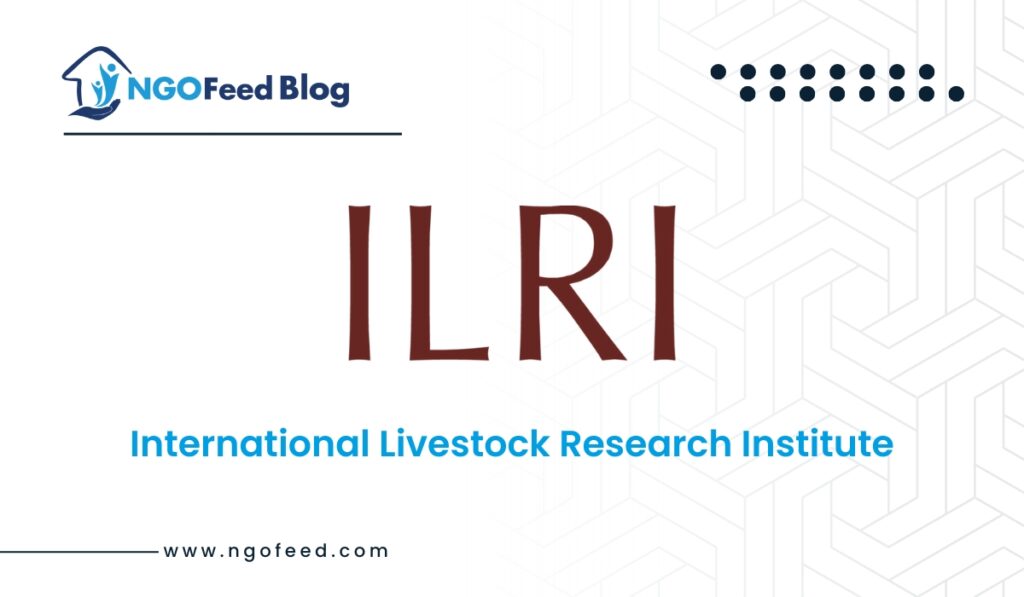The ILRI Full Form is International Livestock Research Institute which seeks to improve life in underdeveloped nations through livestock. Kenya and Ethiopia share hosting duties for ILRI, which has 14 offices spread around Asia and Africa, 700 employees, and an operational budget of roughly USD80 million each year.
A global research alliance for future food security, CGIAR includes ILRI as one of its research institutions. The goals of CGIAR science include eradicating poverty, boosting food and nutrition security, and promoting the use of ecosystem services and natural resources. In close cooperation with hundreds of partners, including national and regional research institutions, civil society organisations, academic institutions, development organisations, and the commercial sector, its research is conducted via 15 CGIAR centres.
History
The United Nations Environment Program, the Governments of Kenya, Ethiopia, Denmark, Sweden, and the Swiss Confederation, as well as the International Livestock Research Institute (ILRI), created the organisation on September 21, 1994. According to the agreement, ILCA (the International Livestock Center for Africa, founded in 1974 with headquarters in Addis Abeba) and ILRAD (the International Laboratory for Research on Animal Diseases, founded in 1973 with headquarters in Nairobi) were combined to become ILRI.
A host country agreement between the governments of Ethiopia and Kenya, which was signed on June 8, 1995, and the government of Kenya, which was signed on December 29, 1994, designates Nairobi, Kenya, as the location of the ILRI’s headquarters.
| ILRI | International Livestock Research Institute |
| Headquarters | Kenya, Nairobi |
| Formation | 1994 |
| Parent Organisation | CCGIAR |
| Method | Social science research |
| Website | www.ilri.org |
| Official languages | English |
ILRI Vission
ILRI envisions a society in which everyone has access to sufficient food and means of subsistence to realise their full potential.
Via research on the effective, secure, and sustainable use of livestock—ensuring better lives through livestock—ILRI aims to increase food and nutritional security and reduce poverty in developing nations.
The 2013–2022 ILRI plan was approved in December 2012. It was the result of extensive consultation and involvement.
Objectives
- To create, test, modify, and spread science-based techniques that, because they are scalable and sustainable, improve animal welfare.
- To convince decision-makers, from farms to boardrooms and parliaments, with the help of partners, that wiser policies and more investments in livestock may benefit both poor countries and individuals in the form of major socio-economic, health, and environmental benefits.
- To empower ILRI’s key stakeholders to use livestock science and funding more effectively for better lives through livestock, in collaboration with partners.
A number of changes have been incorporated into ILRI’s second 10-year strategy, many of which are the result of lessons learned from the first strategy (2000–2010, which was initially produced in 2000 and modified in 2002), an interim strategy (2011–12), and an evaluation of the internal and external environments in which the institute operates.
Major Research Programs of ILRI
- Animal and Human Health
- Feed and Forage Development
- Livestock Genetics (LiveGene)
- Policies, Institutions and Livelihoods
- Sustainable Livestock Systems
- Impact at Scale
- Biosciences for Africa-ILRI Hub
ILRI and India
- ILRI’s main job in India is to deal with how agriculture is changing, especially because of the growing demand for livestock goods.
- India is now one of the biggest milk and meat exporters in the world, whereas it used to be a net importer of dairy goods.
- ILRI’s main goals in India are to connect small-scale farmers to markets, keep an eye on food safety and health risks, and help farmers increase the variety of animals they raise.
- There are three CGIAR research projects that ILRI in India is a part of: Livestock; Grain Legume and Dryland Cereals; and Agriculture for Nutrition and Health.
- ILRI does research to make the livestock sector more productive, safe, and long-lasting. They work with ICAR institutes, colleges, government departments, and NGOs to do this.
- As a way to help local partners get better at what they do, ILRI works with local government groups to make efforts bigger.
- Food safety, zoonotic diseases, new feed and fodder, livestock economics, value chain growth, and policy support are some of the areas that are being looked at.
Conclusion
The International Livestock Research Institute (ILRI) is very important for India and other developing countries that deal with the changing problems in agriculture. ILRI wants to improve food security, people’s ability to make a living, and the long-term viability of livestock production methods through its research and group work. ILRI works to give small farms and other people involved in the livestock value chain more power by looking at a wide range of issues, such as animal and human health, policy support, and market links. By working with CGIAR and other partners, ILRI hopes to make its vision of a world where everyone has enough food and chances to get ahead come true.
Frequently Asked Questions
What is the Full Form of ILRI?
The Full Form of ILRI is International Livestock Research Institute.
When ILRI is established?
The ILRI is established on September 21, 1994.
Where does ILRI Works?
ILRI carries out its research in East, Southern, and West Africa, South and Southeast Asia, and China and maintains offices in different countries.
What is the Mission of ILRI?
The Mission of ILRI is to research the effective, secure, and sustainable use of livestock—ensuring better lives through livestock—ILRI aims to increase food and nutritional security and reduce poverty in developing nations.

